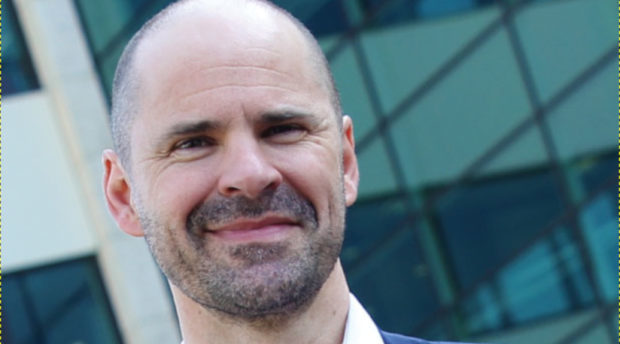
Finding the right fit
Skills and training are huge issues for channel partners and their customers. It’s not an exaggeration to say that the IT industry has suffered from an enduring skills gap for many years. So how do Irish channel partners ensure they have the requisite skills and training to support their sales and support activities in a market where many complain it is hard to find the right people? And if they have them, how do they retain staff that are in demand elsewhere?
Compounding the stresses of skills shortages for Irish companies is the presence of larger multinationals that can offer bigger salaries to potential recruits that have the requisite skills. How can channel partners compete with them for staff and how can fend off advances from multinationals for those they already have? Would it make sense for channel partners to devote more time to training staff straight from college via apprenticeships and graduate programmes?
Richard Whitson Business development manager, Tech Data Academy Training
The skills gap is a major issue across the IT industry, Whitson acknowledges, citing research from Cybersecurity Ventures which estimated there would be a global shortage of 3.5 million cyber security experts by 2021. “Future growth and success for Irish channel partners is going to be dependent on coming at the problem from a different angle,” he argues. “You’ll need to be smart and canny if you want to compete.”

As a distributor, Tech Data provides training and skills development “at a number of levels”. It offers vendor-certified technical and sales training “that enables partners to keep their key skills sharp”. Whitson claims this is especially important in emerging areas of technology, such as IoT, analytics, and machine learning. “With these next-gen solutions, you are all selling into the line of business and need people who can sit down with the board and translate how the technology helps them to transform. For this, you need individuals with a highly valued skill set,” he says.
The company’s Practice Builder Programme is designed to help channel businesses “transform themselves around the latest technologies and high-growth markets”. For example, Tech Data might help a traditional reseller to make the shift to becoming services-led. “We aim to help the partner develop a unique value proposition that fits with where they want to take their business,” he states. The distributor’s accelerator programmes are designed to “plug partners into channel programmes and develop specialisation around a particular vendor technology”.
Resources
Channel partners can also use Tech Data’s professional services expertise and resources to plug their skills gaps. Whitson claims partners can use Tech Data’s “extensive resources and contract in our experts and tools for projects as and when they need them. That means they can keep overheads down, while staying nimble and flexible”.
They can contract in Tech Data’s portfolio of services across a number of different technology areas. Partners “just need to sell the service, Tech Data will manage the implementation”. This gives them the opportunity to “test the waters in a new area, grow business and build revenue, until such time that they can justify bringing their own resources on-board. We also have fully formed solutions that partners can sell. For instance, our IoT team has developed its own solutions catalogue, and we also have cybersecurity and audio-visual solutions ready to go”.
But what about retaining staff? “It’s simple,” Whitson remarks. “Provide them with an enjoyable, rewarding environment where they not only can be successful, but also see their success celebrated. This of course requires great leadership from those at the top. The big question then becomes, how do you create an environment that nurtures great leadership? That is a whole separate subject.”
Tony O’Malley CEO, Fujitsu Ireland
“The increasing need for talent and high-quality skills development has important implications for the Irish labour market supply,” O’Malley warns. “Improved and industry-specific skillsets are key to engender a more efficient workforce, which supplies businesses’ demands.” Businesses are also under pressure to try to attract and retain talent with core technology skills, such as AI, cloud and Blockchain.

He argues it is “fundamental that people who were not previously able to enter the workforce can now participate and upskill”. Fujitsu places “a big emphasis on building the skills pipeline by encouraging students to get involved at an early age through our involvement with local schools and in an advisory capacity on education and training”, O’Malley reveals.
It is also important to look beyond the traditional education sector and make people “aware of the possibility that conversion and reskilling programmes and continuing professional development are pathways into ICT that must be explored”.
The vendor “has a strong network of channel partners in Ireland” and it works closely with them so the company is “well-placed to discuss how industry and employees can stay relevant and equipped in today’s world of radical change”. O’Malley says that “one of the things we are currently sharing with our partners is the importance of trust in terms of attracting and retaining talent”. Fujitsu recently published a report entitled “Driving a Trusted Future in a Radically Changing World”, which found that people “are less trusting of organisations than they were five years ago. If companies don’t remedy this trend, they will fail in attracting and retaining skilled workers,” he warns.
Michael Conway Director, Renaissance
The gap in skills and the shortage in availability of skills “are ever present throughout the IT industry”, Conway admits, adding the issue “is particularly challenging” when it comes to cyber skills. The main challenges concern the availability of relevant and current skills, the ability to recruit skilled people and the ability to retain skilled people when recruited.

When it comes to availability of skills, Conway believes this is partly because the relevant skills “are difficult to teach and without significant work experience, the individuals who come out of the training processes are inexperienced and unable to deliver the service levels to the necessary extent”. He recounts presenting to a group of post graduate cyber students outlining the industry and how it was structured, covering users, channel, distribution, vendors and consultants. “When I asked what sector most of these soon to be graduates and specialists in cyber wanted to get into, the overwhelming majority wanted to be consultants,” he recalls. So the channel still has some way to go in persuading students that it provides a good career path for them.
One way to do this, Conway suggests, is to take on paid interns as part of their college courses, as Renaissance has done, because it gives them “a huge opportunity to develop their experience so that they are employable. Our focus when taking on interns is that when they finish with us their CV and experience has built up to a degree where they are employable”. To achieve this aim, the distributor ensures “they get actual real brand accreditations and experience, so they work on live and relative technologies deployed out in the field”.
This is something that colleges will need to look at, he believes, by changing their focus “from some of the more theoretical elements to actual practical real life elements in order to turn out more rounded graduates better equipped for the market. This can be done through intern programmes or else changing the curriculum”.
As for recruiting skilled people, Conway says the challenge needs to be addressed “by making the channel more sexy – if that is possible and perhaps by the channel reaching out to the colleges to be part of the programmes”. He wonders whether the “industry needs a body to focus on delivering these skills” or if vendors should “deliver appropriate, and free, training and accreditations. The obstacle of having to pay significant sums for these accreditations is challenging. The vendors who embrace education and training are, for the most part, the most successful. Sadly, everything is now done by spreadsheet and sometimes all that reveals is the cost, not the value, of training and education.”
Paul Kavanagh Country manager, Ireland, Cisco
Kavanagh makes the significant point that competition for talent “is something everyone is experiencing, not just in the IT industry but far beyond, with companies in all sectors becoming increasingly digitalised and in need of specialist skills”. And when it comes to Ireland, success can bring its own problems. “In many ways Ireland’s economic success is a driving factor behind this due to current high levels of employment,” he observes.

From Cisco’s perspective, in terms of attracting and retaining staff, the focus is on making the company “an inclusive and diverse place to work, where people are excited by the work they are doing, being flexible to the demands of modern life and making people feel like they are contributing to society. This makes us a better company, a better global competitor and a better corporate citizen”.
Like a number of other respondents, he makes the point that an obvious solution to the challenge of skills shortages “is to expand the existing talent pool by upskilling those who are willing to learn, regardless of their background”. Cisco has done this by extending its Networking Academy programme “to make digital skills training accessible to everyone in Ireland by offering entry level courses through Ireland’s libraries”. Since 1999, more than 21,600 students in Ireland have completed Networking Academy courses through 26 academies, and 89% of them have obtained jobs or gone on to further opportunities as a result.
Kavanagh adds that Cisco places “a big emphasis on recent graduates too, giving them opportunities through our long-standing partnerships between our Galway R&D centre and local universities”.
Karen O’Connor, General manager, Datapac
“The problem with a lot of recruitment strategies in the Irish tech sector, including the channel, is the emphasis on recycling talent in the existing pool,” O’Connor argues. “If we are to sustain a successful indigenous technology industry long term and remain competitive for the global technology organisations that Ireland seeks to attract and retain, the focus needs to be on widening the talent pool.” This can happen in a number of ways, she adds, such as collaborating more closely with the education sector, encouraging more women into technology roles and enabling skills conversion programmes for people who have trained and/or worked in other areas.

She describes technology as “a great enabler” that allows people to work from any location. “Opening up the regions to more technology employment will help to alleviate the skills gap and provide more opportunities for businesses to grow and regions to thrive,” O’Connor suggests. Datapac’s Network Operations Centre, for example, is based in Enniscorthy. “This gives our team the opportunity to achieve world-class accreditations, work on highly innovative projects and provide the highest levels of client support, while still enjoying the many benefits of living in the South East,” she says.
Datapac also places “a huge focus on collaboration with local schools and third level institutions”. The company has employed more than 160 third level students on its work placement programme “to considerable success for both parties”. Students gain practical, hands-on experience working across the business and many have gone on to Datapac’s graduate programme and ultimately built successful careers with the company.
“Most recently, we have hired 10 graduating students from Carlow IT on our graduate programme,” she reveals. “To make this a success, we’ve worked very closely with the graduates and colleges to ensure they are developing the right skills and are able to make a positive impact.” Datapac has made a considerable investment in consistent, structured mentoring and two-way feedback with the students and relevant contacts within the colleges. “This collaborative approach ensures the investment is worthwhile for the students and graduates, the colleges, and for Datapac,” she claims.
In transition
The company also works closely with local schools, particularly Transition Year students, to provide taster sessions of what it is like to work in a technology company, including career talks with various team members and senior engineers.
“While the primary goal of our work with schools is to encourage students from all backgrounds to tick technology related courses on their CAO applications,” O’Connor remarks, “we’re also finding some students are choosing to join the workforce after school to work with a company like Datapac to gain real experience and find an alternative path to a successful career should they choose it.”
Encouraging diversity and inclusion is also crucial. She says that Datapac has developed policies “which have allowed us to take a lead in this area. We have a programme that enables senior leaders in the company, including myself, to mentor female business colleagues, providing them with strong role models and empowering them to succeed at Datapac”. The company continually hones its approach, looking at all aspects of the business. “Even our job descriptions are carefully worded to encourage a diversity of applications for each position,” she states. “Our policies are working. A significant proportion of our workforce is female and this increases further at management level.”







Subscribers 0
Fans 0
Followers 0
Followers